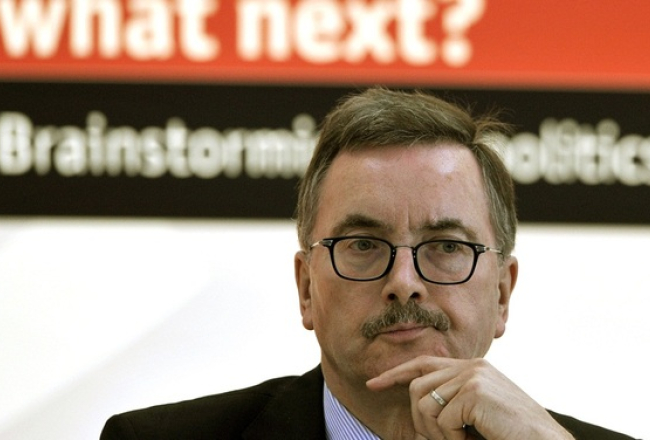
Jirgens Štarks. Foto: AFP/LETA
Valdībām jāspēj samazināt budžeta deficītu un atgūt uzticību - cita ceļa vienkārši nav, uzskata Eiropas Centrālās bankas vadības pārstāvis Jirgens Štarks
Jirgens Štarks ir ļoti vērtīgs cilvēks. Kad septembra sākumā viņš paziņoja, ka atkāpsies no amata Eiropas Centrālās bankas valdē un padomē, gan Eiropas, gan ASV akciju tirgi piedzīvoja strauju kritumu, samazinot biržās kotēto uzņēmumu vērtību par miljardiem dolāru. Oficiāli viņš nav gatavs izskaidrot savas atkāpšanās iemeslu, tomēr visiem ir skaidrs, ka tas notika kā protests pret ECB krīzes laikā piekopto politiku, kuras ietvaros centrālā banka sākusi pirkt grūtībās nonākušo eirozonas valstu obligācijas, tādējādi novēršot to vērtības krišanos. Štarks tika uzskatīts par svarīgāko «vāciskās» ekonomiskās politikas pārstāvi ECB, jo viņš iestājās par ļoti stingru monetāro politiku un valstu parādzīmju pirkšanu uzskatīja par pirmo soli uz ECB naudas drukāšanas mašīnas bīstamu pakļaušanu politiķu īstermiņa vajadzībām.














